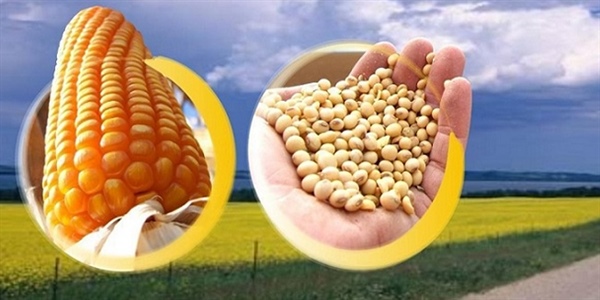
The decision to reset the value on corn and soy imports was taken by Camex to contain the rise in food prices
Two of the main grains used in national agriculture – soy and corn – will have their import tax rate zeroed in order to maintain balance in the supply of these products in the domestic market. The decision was taken by the Executive Management Committee (Gecex) of the Foreign Trade Chamber (Camex) this Friday (16th), during an extraordinary meeting, based on proposals presented by the ministries of Agriculture, Livestock and Supply (on soy ) and Economics (on maize).
Read also
- Camex reduces taxes and Brazil takes a giant step towards cabotage growth
- 109 more solar energy equipment have import tax zeroed by the Government
- Bolsonaro zeroes import tax on 281 pieces of equipment
Zero taxes on soy and corn imports
The temporary suspension of the import tax for soy (soybean grain, bran and oil) will be valid until January 15, 2021. As for corn, Brazilian imports without payment of tax will go until March 31, 2021. dates aims not to jeopardize the marketing of the next crop, whose harvest is scheduled for the beginning of next year.
The increase in global demand for food, caused by the occurrence of the Covid-19 pandemic, generated similar effects, but with different motivations, in the markets related to these two commodities.
In the case of corn, there was an increase in domestic consumption to supply animal protein production, which recorded growth in exports. Movement that has already been registered in the last two decades, at a rate of 14,3% per year.
Government says everything will return to normal soon
In the case of soybeans and derivatives, such as bran and oil, there was also an increase in foreign sales, which gained momentum with the appreciation of the dollar.
“Due to these factors, it was convenient to seek a preventive measure, in order to equalize the conditions for imports from third countries with Mercosur, strengthening the supply of the domestic market”, says the Commercialization and Supply director, Sílvio Farnese. It is important to point out, according to the Director of Mapa, that there is no expectation of a lack of products.
The objective is to promote an adjustment between supply and demand for these products in the period prior to the 2020/2021 harvest, which takes place from the beginning of next year.













Air Force F-16 fighters…
True friend, what they shot down were…
Air Force F-16 fighters…
I would like to know what planet you live on…
Air Force F-16 fighters…
Well... It's flying scrap... Typical...
They discover the third largest deposit…
That’s why all foreigners and NGOs…
Air Force F-16 fighters…
Which genocide are you talking about? Than…
Not allowing Onix to compete with…
I already had a Corolla sedan and I intend to…
I'm in the Versa room, the first…
It is a divine blessing.
And they also say it will be cheaper…
So superior that it sank the Ferrari... 😏
I had an automatic Corolla, the best car, my…
What is the value of the Yares Cross?